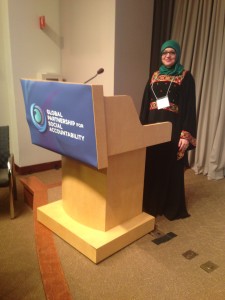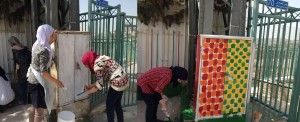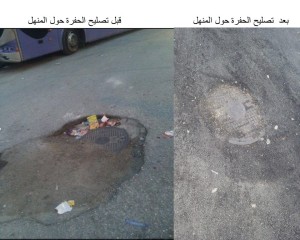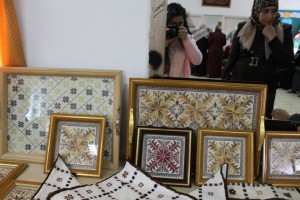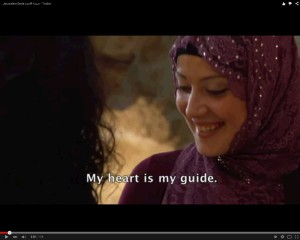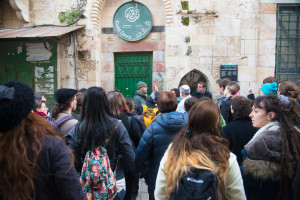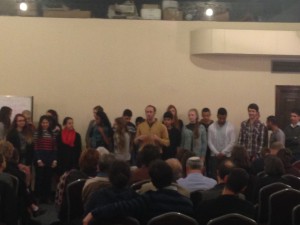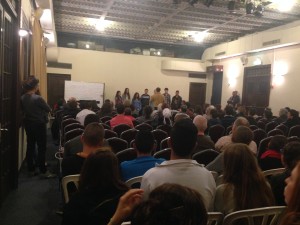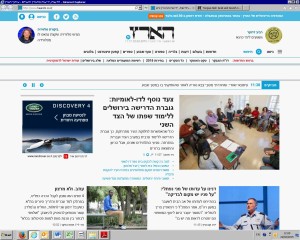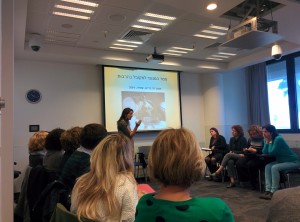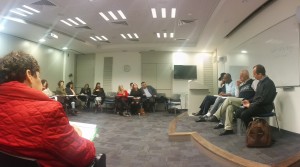MiniActive Going International – at the GPSA Conference in Washington, DC
We’ve always known that the MiniActive project was on to something special, and that the 1,000 women – and 150 teenage girls – who take part are doing an amazing job. And now we’re getting to share this knowledge with others around the world. Just last week, our own Hagai Agmon-Snir and Intisar Qaraeen took part in the GPSA (Global Partnership for Social Accountability) Partners Forum 2015 in Washington, DC, USA. They presented MiniActive as a case study for empowering Palestinian residents of East Jerusalem and enabling the provision of municipal and other services. The GPSA was launched in 2012 by the World Bank, and seeks to help civil society organizations solve critical governance challenges. “Everyone who heard the story of MiniActive was very impressed,” said Hagai. “It was a great experience for both of us.” Click here to see the power point that they gave.
And indeed, MiniActive’s accomplishments in recent months are quite impressive. Work with the teenage girls has developed well. (More about the groups here.) In late February girls from the Jebel Mukaber High School for Girls took on a project to clean up and beautify the road that leads to their school. Unfortunately, during the summer months last year this street was also the site of unrest and violence, which left the street in not-a-very-good-state. The girls cleaned up the street and painted the electricity boxes and the fence that runs along the road. It now not only looks better, the girls and their schoolmates and families, feel much better about their environment.
Also as part of the program the girls’ groups are taking part in ceramics classes, provided by the Bezalel Academy of Arts and Design. As part of that course, which will finish at the end of May, girls from the Umm Tuba Junior High School for Girls are preparing a giant ceramic clock for the school. Girls from the Jebel Mukaber High School for Girls are decorating a wall with ceramic tiles, which will have representations of their hopes and dreams. This project will also be finished soon; stay tuned for pictures.
MiniActive Women – Continued Accomplishments and Community Building
Here’s a few updates from the largest project for Palestinians – and largest women’s project – in East Jerusalem:
First – we’re expanding! We recently opened several new groups in Ras el-Amud, and welcomed 100 new women to the project. A few statistics about the work: In March, there were 470 requests for repairs, 150 of which were taken care of; In April, there were 600 requests, 200 of which were taken care of. In addition, 25 compost bins were distributed. These included a safety net in Sur Baher, a handrail along the side of a steep road to help pedestrians, fixing potholes, electrical wires, placing safety mirrors on windy roads, and much more. Women from the Old City toured the neighborhood with the worker in charge of garbage collection in that area, and he promised to place another 10 garbage receptacles throughout the Palestinian areas of the Old City. In the beginning of March 20 women met with a representative of the water company. They discussed different difficulties Palestinian residents of East Jerusalem face with regards to water – bills, meters, etc. – and explored ways to solve problems.
We continue to develop the professional skills of the women, especially the group leaders. Monthly regional coordinator meetings (who are in charge of several groups in each neighborhood) discuss issues that the women are facing throughout the city – garbage collection, donations to families in need, how to deal with service providers’ sub-contractors (which is common in East Jerusalem), how to interact with the municipal hotline operators, and more. At the end of March there was a large event in honor of the MiniActive women. We thought – March includes International Mothers’ Day, Women’s Day, etc., it should also include a MiniActive Women’s Day. The even attracted more than 250 women, who enjoyed a comedy act, they shared handicrafts that different groups had made, and more.
Fifty-two MiniActive women participated in a tour of Haifa in March. They visited the Bahai Gardensand then the Beit Hagefen Arab-Jewish Cultural Center. Beit Hagefen operates different volunteer projects in Arab neighborhoods in Haifa, and this tour was by and large a learning tour. The Jerusalem women heard about a number of projects, such as projects for girls at-risk, an “alternative” youth club and a tour of the Wadi Nisnas neighborhood.
The MiniActive women have also been participating in a number of courses:
- Hebrew – they’ve expanded to include both beginning (35 participants) and intermediate (70 participants) levels.
- Computers – 16 participants in an introduction to computers course.
- Lev Isha (Women’s Heart) – program promoting women’s health and nutrition, in cooperation with the Linda Joy Polling Cardiovascular Wellness Center at Hadassah Medical Center, Ein Kerem. Twenty MiniActive women participated.
- Compost instructor – Twelve MiniActive women are participating in a course offered by the David Yellin Academic College of Education in instructing community members in using compost effectively.
- Sports – Forty women are participating in a sports class, which meets twice weekly, that opened in April.

